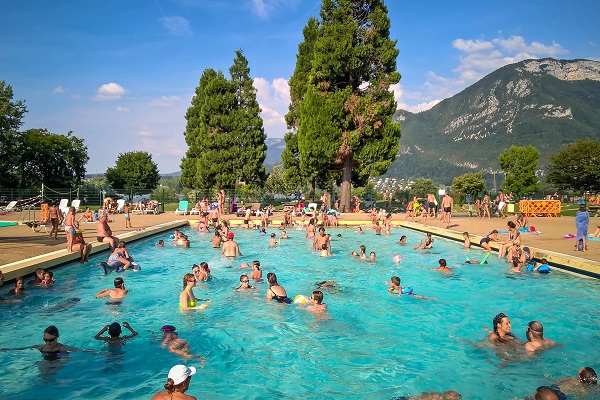
Pool officials cited a non-existent rule
Mayor Mike Purzycki of Wilmington city in Delaware has apologized to Darul-Amaanah Academy[/tweetit], an Islamic school after the latter's students were forced to leave a local public swimming pool. The reason cited by the pool management at that time was that the students of the school wore shirts, hijabs, and shorts into the water. The mayor admitted that the city officials managing the pool did not use proper judgment when it came to the religious clothing needs of the students.
Muslim Kids Kicked Out of Public Pool[/tweetthis]
Mayor Purzycki's response was the opposite of the initial reaction of the officials in charge of Foster Brown pool. To justify their stance, the officials dictated unspecified city policies concerning the need for bathing suits. The mayor admitted as such when he blamed the poorly worded policies governing the pool for this fiasco.
The problem is the meaning of the phrase "proper attire." The rules posted by the city do not particularly specify proper swimming attire with the exception of banning "cut-off jeans." The rules also "recommended" bathing suits. Cotton was not mentioned in any part of the text. In defense, John Rago, the mayor's deputy in charge of communication and policy, said cotton increases in weight when it gets wet. The resulting increased weight adds as a deterrent to swimmers. The deputy also pointed out that cotton pushes extra pressure on to the filtration system of the pool.
The educational institute in question, Darul-Amaanah Academy, is owned and managed by Tahsiyn Ismaa'eel. Mrs. Ismaa'eel said that a few of her campers were asked to exit the pool waters as they wore headscarves shorts and cotton shorts. She alleged to the media that the prohibitive rule against wearing cotton was not published in the rulebook and it was used to discriminate.
This is #TrumpsAmerica and I will #ShowUpForDemocracy Every Night #UntilHesOut #HateHasNoHomeHere Report all hate crimes. Shame the haters. Immigrants Make America Great #TheResistance2018 #VoteBlue2018 #VoteThemOut https://t.co/tZYrXePOmS
— K. V. Peck (@kvpeckwriter) July 16, 2018
In her interview with the media. Ismaa'eel said that the manager of the pool told her on June 25 about the cotton being prohibited rule, at a time when her children were already frolicking in the waters. She replied to the school authority that the information would be relayed to the parents of the children, but it was not enough for the official. A police officer approached her sometime later and asked the time when she would leave the pool with the children. The reason being given to her is that other children awaited their turn. This was surprising to Ismaa'eel as children of another school were in the pool longer, but they were not asked as to when they would leave.
